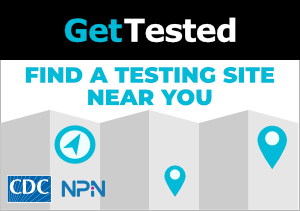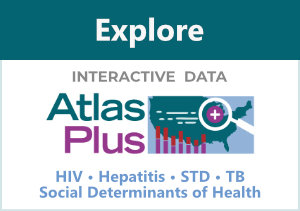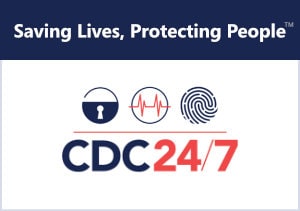Integrating Infectious Disease Screening and Prevention at Substance Abuse Treatment Centers
PCSI Success Stories
Strengthening Collaboration and Service Integration in Texas
Substance abuse, mental health, and infectious diseases are intertwined health concerns affecting shared populations. Research shows that alcohol and other drugs can lower a person’s inhibitions and increase risk factors for HIV transmission.1 Substance abuse can also hasten disease progression and negatively affect adherence to treatment for those already infected with HIV.2
In light of these issues, the Texas Department of State Health Services (TDSHS), with support from CDC’s Program Collaboration and Service Integration (PCSI) Cooperative Agreement, conducted two surveys. These surveys provided information about the Texas substance abuse system and any infectious disease activities identified within the system. The information gathered prompted the integration of infectious disease screening and prevention at substance abuse treatment centers.
Program Activity
Results from the first survey found that substance abuse and infectious diseases shared common populations, risk factors, social determinants, and even contracting venues. It also found that there was little collaboration between programs that provided services to these populations. These programmatic siloes provided no real role for infectious disease detection and connection to medical care for substance abusers.
The second survey looked at the Texas substance abuse infrastructure and focused on identifying gaps for integrating, expanding, or improving the quality of infectious disease screenings for substance abusers. This survey revealed that opioid substitution therapy clinics (also known as methadone clinics) would be optimal venues for service integration because these clinics serve a population that is 60% injection drug users; have medical staff performing brief health assessments for all new clients; and already have some infectious disease screenings in place, including routine tuberculosis testing and intermittent opt-in HIV testing.
Progress
The TDSHS PCSI Coordinator convened a workgroup composed of representatives from the substance abuse, HIV, STD, tuberculosis (TB), viral hepatitis, and immunization programs. The workgroup reviewed 22 clinics in the Texas substance abuse public health infrastructure, and selected six demonstration sites for a trial run of service integration. The sites were selected based on percentage of injection drug users served, geographic distribution across the state, border status, urban vs. rural location, and local staff interest. Each implemented routine opt-out HIV, hepatitis B, hepatitis C, syphilis, and TB testing along with hepatitis A/hepatitis B immunizations for all clients entering treatment. Clinic nurses performed testing and immunization, and on-staff physicians provided all test results.
Successes/Outcomes
This cooperative agreement between CDC’s PCSI program and TDSHS achieved impressive results:
- Increased Disease Identification. Opioid substitution therapy clinics proved to be an excellent venue for disease identification, particularly hepatitis C, as the HCV positivity rate for the demonstration clinics was 63% (768 out of 1,215 tested).
- Improvements in Infectious Disease Services across the Texas Substance Abuse Public Health System. While the service integration project involved just 6 sites, the knowledge and experience gained through these activities brought about long-needed improvements in infectious disease services across the Texas substance abuse public health system, including
- Clinical errors in TB testing identified at 4 of the 6 demonstration sites led the workgroup and the TB program to expand training and technical assistance to all 22 opioid sites within the public health system and implement a more robust referral process for opioid therapy clients testing positive.
- A lack of hepatitis C treatment resources at the rural and border area demonstration sites, paired with the extremely high HCV infection rate across all demonstration sites, led the workgroup and the substance abuse program to require hepatitis C support groups at all 22 publically funded opioid clinics.
Lessons Learned
Through this effort, TDSHS learned that
- Local organization staff and substance abuse administration are open to integration and participating in holistic care for their clients.
- With technical assistance in the first year, local organization staff have the capacity to incorporate infectious disease activities into existing services.
Next Steps
Based on the success of the changes, TDSHS will take the following next steps:
- Movement from demonstration project to regular business practice. Financial support for the 6 demonstration sites was provided by PCSI, substance abuse, and immunization programs. With these agreements ending in Fall 2014, plans are to expand these services to all 22 publicly funded sites. As Texas is not expanding Medicaid at this time, the substance abuse program will be underwriting all costs for non-Medicaid eligible clients entering opioid treatment. With the expansion to all sites, medical screenings for chronic diseases that affect the population, including diabetes and hypertension, will also be included in the protocol.
- Reconnection to HIV Medical Care. By integrating services, opioid substitution therapy clinics may be able to facilitate reconnection to HIV medical care for previously diagnosed HIV-positive persons. Anecdotal evidence suggests that most previously diagnosed HIV positive people entering opioid substitution therapy clinics are not in HIV medical care due to prolonged chaotic drug use. This issue requires further exploration.
1 https://www.cdc.gov/hiv/risk/substanceuse.html
2 Malta M, Magnanini MMF, Strathdee SA, Bastos FI. Adherence to Antiretroviral Therapy Among HIV-Infected Drug-Users: A Meta- Analysis. AIDS Behav (2010) 14:731-747.
For more information, please contact:
Todd Logan
PCSI Coordinator HIV/STD Prevention & Care Branch Texas Department of State Health Services
512-206-5934 Nicole.beckwith@dhhs.nc.gov
Printable PDF versionpdf icon of PCSI Success Story


